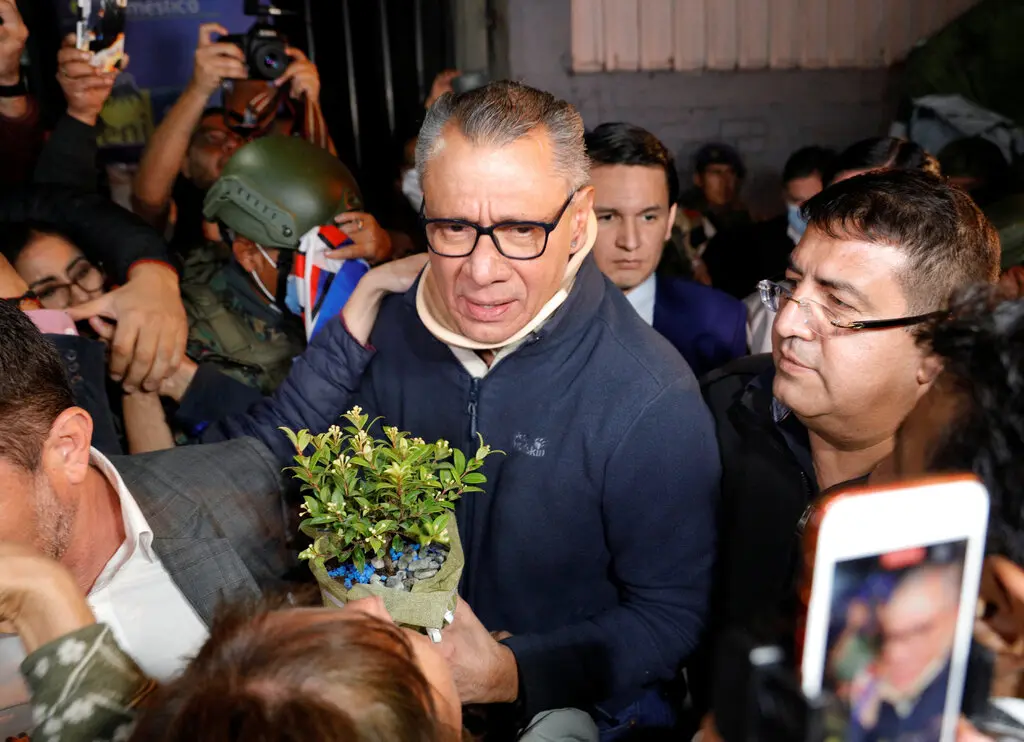Nothing Is Sacred: Ecuador’s raid on Mexico’s embassy and the rapid erosion of norms and rules

The 2024 raid on the Mexican embassy in Ecuador reverberated across the South American region, leaving a trail of diplomatic tensions and international repercussions. This audacious incident unfolded on April 5, 2024, when Ecuadorian police and military forces stormed the Mexican embassy in Quito, the capital of Ecuador. The raid was not merely a localized event; it had far-reaching implications that underscored the delicate balance between sovereignty, diplomatic norms, and political exigencies.
At the heart of this crisis was the presence of Jorge Glas, the former vice president of Ecuador. Glas had sought asylum within the protective walls of the Mexican embassy, alleging political persecution. His predicament stemmed from a corruption conviction that had led to an eight-year prison sentence. Since December 2023, he had taken refuge in the embassy, evading incarceration. However, a few hours before the raid, Glas had been granted political asylum, further complicating the situation The raid itself was a brazen violation of established diplomatic conventions. Both the 1961 Vienna Convention on Diplomatic Relations and the 1954 Caracas Convention on Diplomatic Asylum were trampled upon as Ecuadorian forces breached the embassy’s sanctity. Mexico, along with numerous other countries, swiftly condemned this audacious act. The sanctity of embassies as inviolable spaces for political asylum and diplomatic representation had been shattered, casting a shadow over the entire region.
The geopolitical ramifications were manifold:
- Diplomatic Fallout:
- Mexico’s immediate response was to sever its relations with Ecuador. The breach of trust between these two nations reverberated beyond their bilateral ties. The raid signalled a disregard for international norms and a willingness to sacrifice diplomatic decorum for domestic imperatives.
- Nicaragua, in a show of solidarity with Mexico, followed suit by also ending diplomatic relations with Ecuador. The incident highlighted the interconnectedness of regional politics and the potential for one nation’s actions to trigger a chain reaction across neighbouring countries.
- Regional Instability:
- The raid underscored the fragility of regional stability. South America has a history of political upheavals, coups, and territorial disputes. The Ecuadorian authorities’ decision to forcibly apprehend Glas within the embassy walls added another layer of tension to an already delicate geopolitical landscape.
- Neighbouring countries watched closely, assessing their own vulnerabilities. The incident served as a stark reminder that diplomatic immunity and asylum protections could be compromised when political interests collide.
- Legal Precedent and Trust Erosion:
- The raid set a dangerous precedent. If embassies are no longer safe havens, diplomats and asylum seekers alike face heightened risks. Countries may hesitate to grant asylum or harbour fugitives within their diplomatic premises, fearing similar breaches.
- Trust in diplomatic channels eroded. Nations must now grapple with the delicate balance between respecting sovereignty and upholding international norms. The incident forced policymakers to re-evaluate their strategies for managing political dissidents and high-profile cases within their borders.
The 2024 raid on the Mexican embassy in Ecuador transcended national boundaries, serves as a stark reminder that geopolitical tensions can spill over into diplomatic spaces, affecting relations between nations and challenging established norms. As South America grapples with its complex history and contemporary challenges, this incident remains a cautionary tale for all countries navigating the intricate web of international politics.
